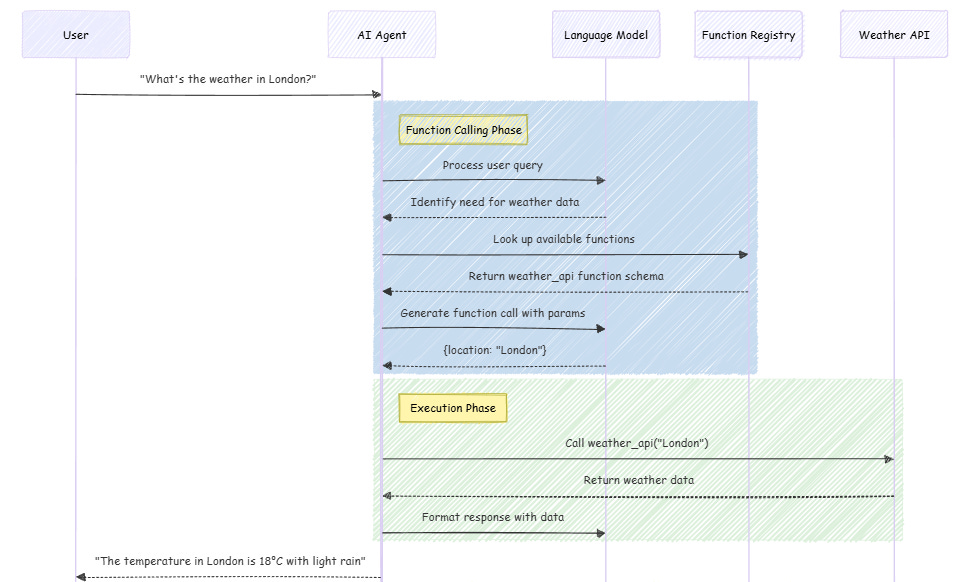How to build AI agents in 2025 - Frameworks
A quick look at the most popular AI Agent frameworks in Python.
If you are here I assume you already know what an AI Agent is, but just to make sure we are on the same page, in this discussion we will define Agent as - A software system that combines the power of LLMs(Large Language Models) and Function Calling to delegate parts of the control flow of the program to an LLM.
Frameworks
Give me six hours to chop down a tree and I will spend the first four sharpening the axe - Abraham Lincoln
Before you begin your journey of building intelligent Software using AI agents, you need to know the right tools to ensure you are not wasting time on low-value coding work.
Let us look at some tools, that can help you get started building AI Agents to minimise time to value.
LangGraph
As a successor of the renowned Langchain framework, Langgraph gives you a lot of flexibility to build complex AI Agent configurations without re-inventing the wheel.
Autogen
Backed by microsoft, Autogen is a great option to experiment with enterprise grade multi-agent systems. It also comes with interoperability tools with popular frameworks like Langchain making it easy to use the best tool for the job when needed.
CrewAI
CrewAI focuses on simplifying the orchestration of multiple specialized agents. It excels in scenarios where you need a team of agents working together, each with specific skills and responsibilities
LlamaIndex
LlamaIndex streamlines the process of connecting LLMs to external data sources. It's particularly useful when your agents need to access and process large amounts of information from databases, APIs, or documents.
Pydantic AI
Pydantic AI integrates the data validation and parsing capabilities of Pydantic with LLMs. This helps ensure the reliability and structure of the data your agents work with, which is critical for building deterministic applications.
SmolAgents
A recent release from HuggingFace, the goal of this library is to simplify the process of building powerful AI agents using any LLM provider.
Others
Apart from the tools mentioned above, there are many other tools that can achieve the same outcomes. In some cases you might event want to explore building from scratch using only the official SDK from LLM providers like OpenAI or Anthropic.
The Road Ahead: AI Agents in Practice
The evolution from simple chatbots to AI agents represents a fundamental shift in how we build intelligent software. While chatbots excel at conversational interactions, AI agents promise something more transformative: autonomous actions and seamless integration into our daily workflows and applications.
Consider how this transformation is already beginning: Email clients are becoming smarter with AI agents that not only prioritize messages but draft contextual responses. Legal teams are leveraging agents that enhance contract reviews by automatically cross-referencing clauses against company policies. Even creative workflows are changing, with AI agents that can transform rough presentation outlines into polished PowerPoint decks, complete with relevant visuals and data.
However, realizing this potential requires more than just adding AI capabilities to existing software. Many applications will need fundamental re-architecting to become truly AI-native, where intelligence isn't just a feature but a core part of the application's DNA. This shift promises to make our tools not just smarter, but more intuitive and aligned with how we naturally work.
The frameworks discussed above provide the building blocks for this transformation. Whether you choose to build with established tools or craft custom solutions, the key lies in understanding both the capabilities and limitations of AI agents in your specific context.
Join the Discussion
Which of these frameworks have you been using in your projects?
Are you on team "build from scratch" or "leverage existing frameworks"?
What unique use cases have you discovered for AI agents in your work?




